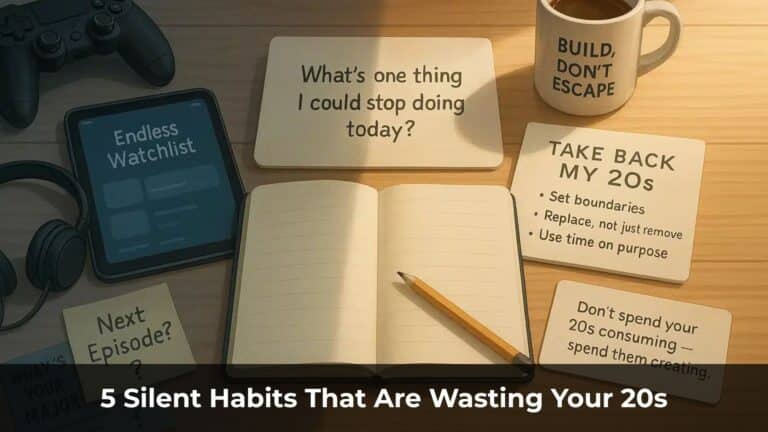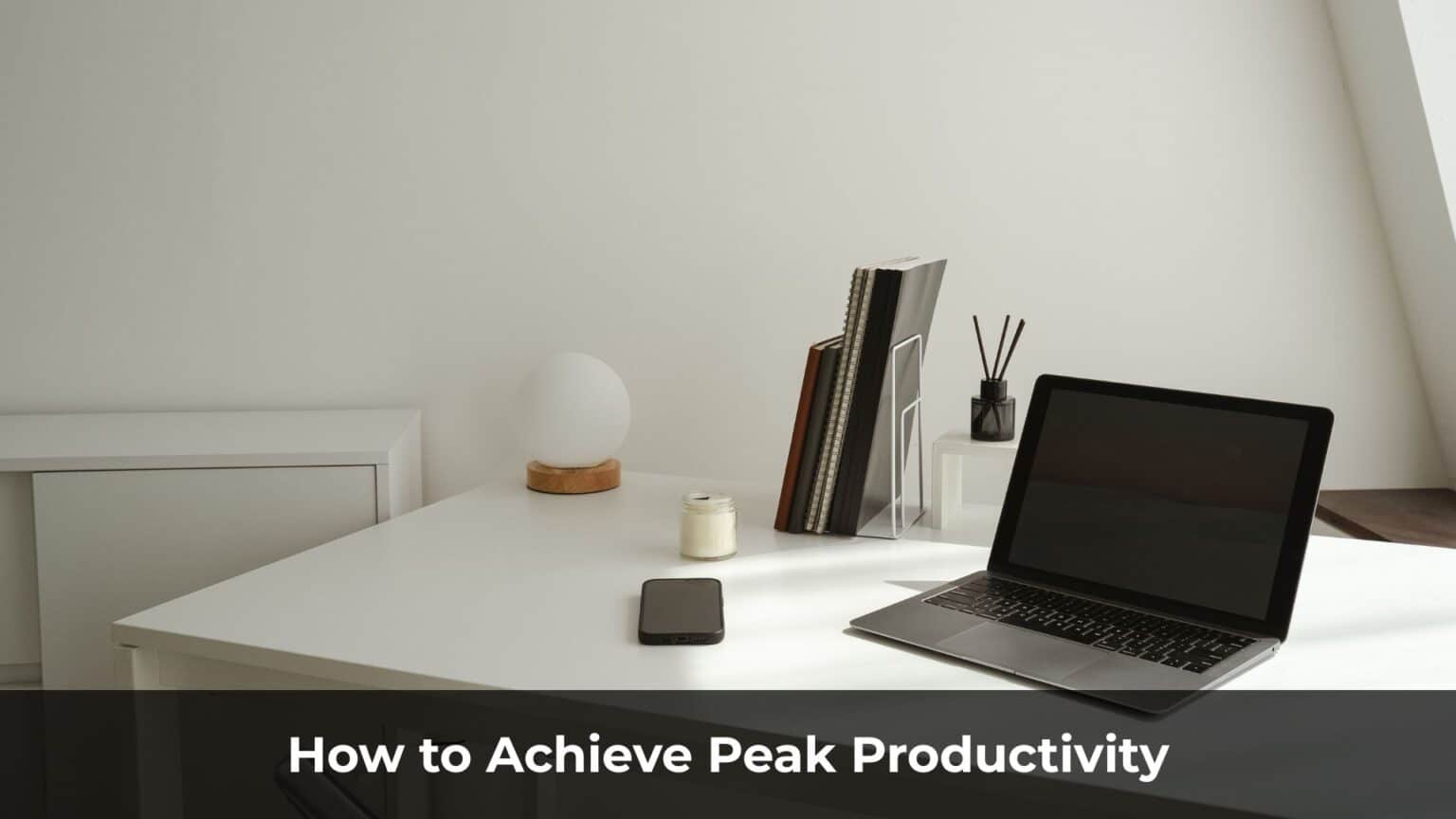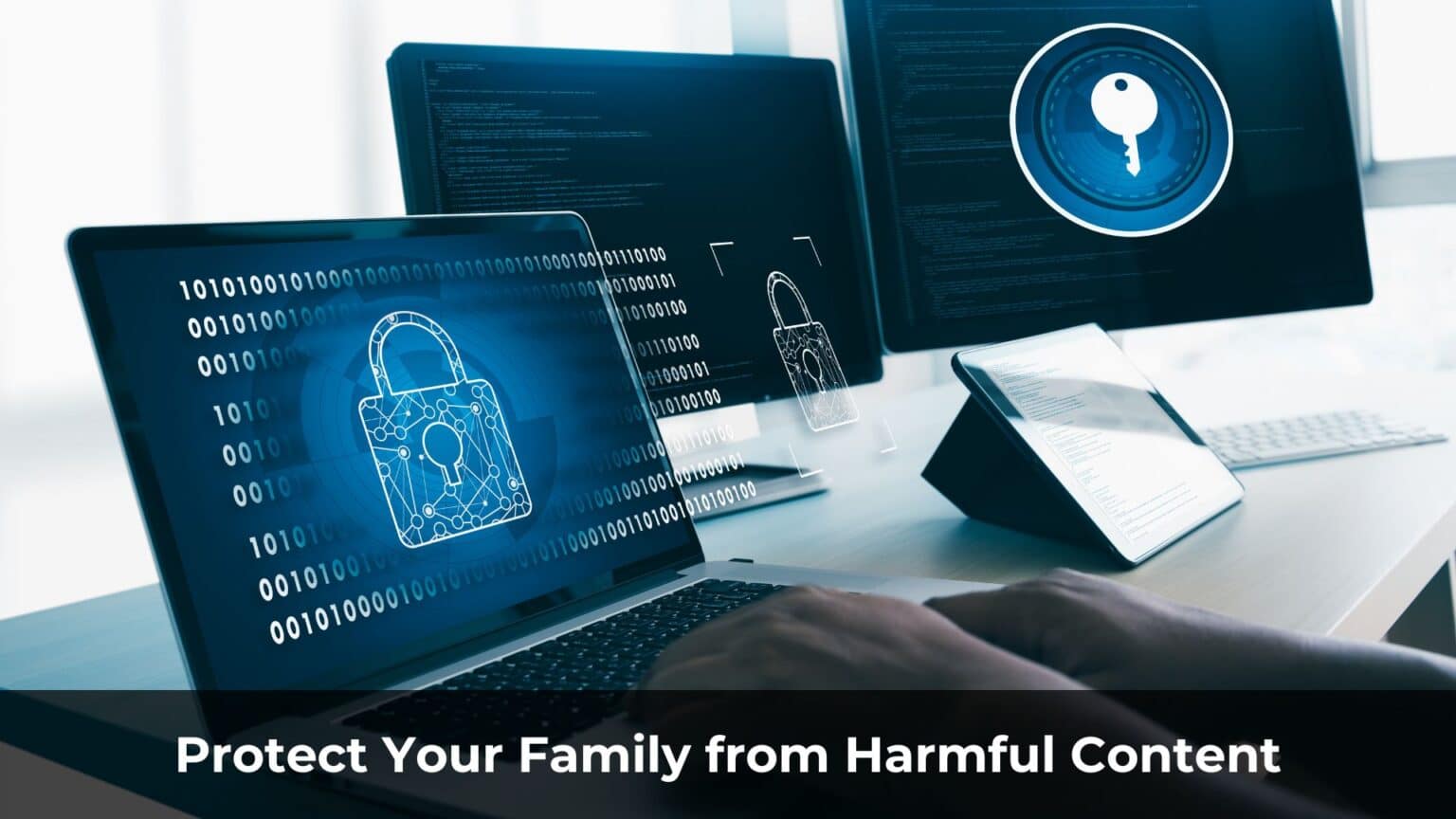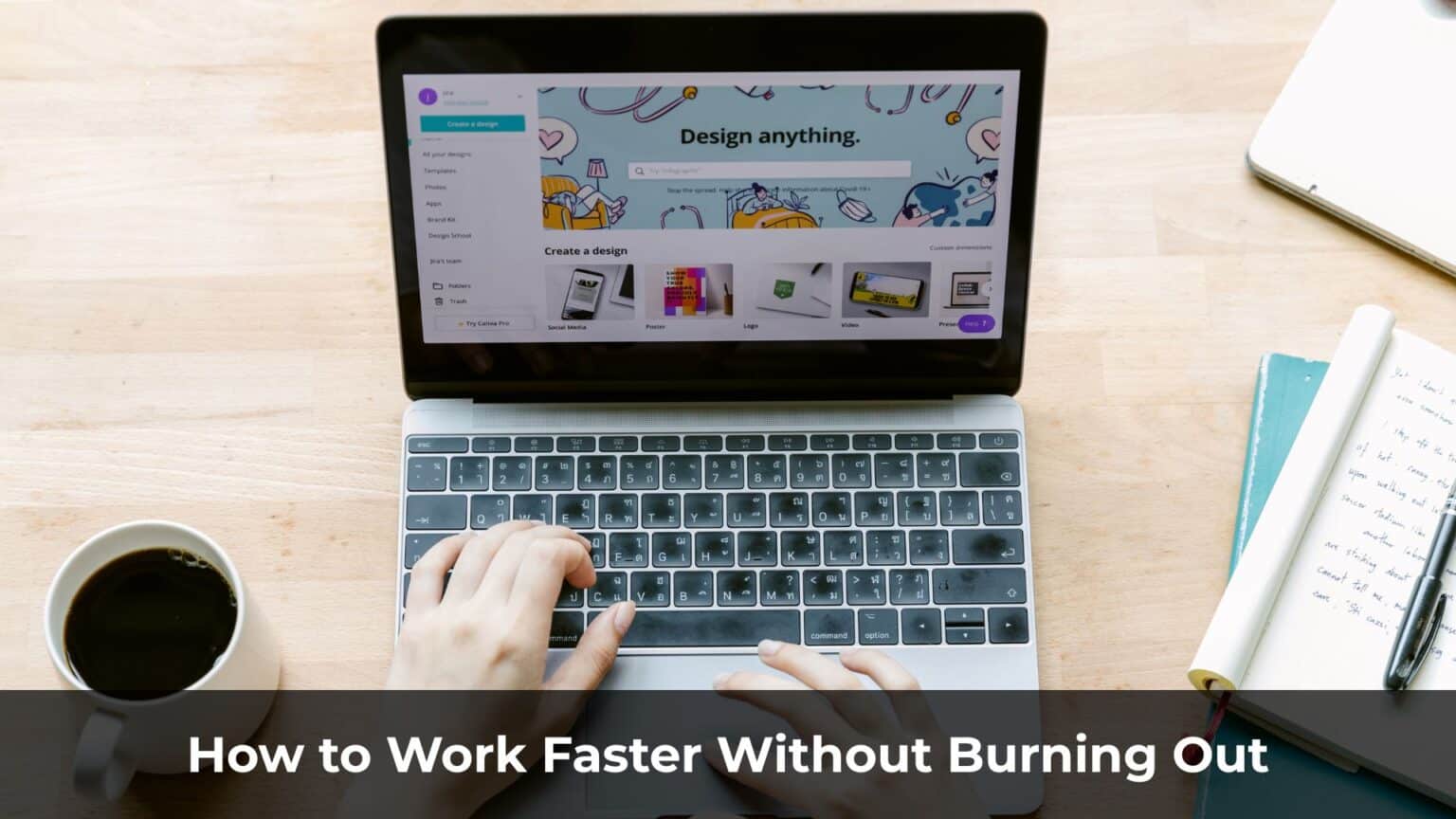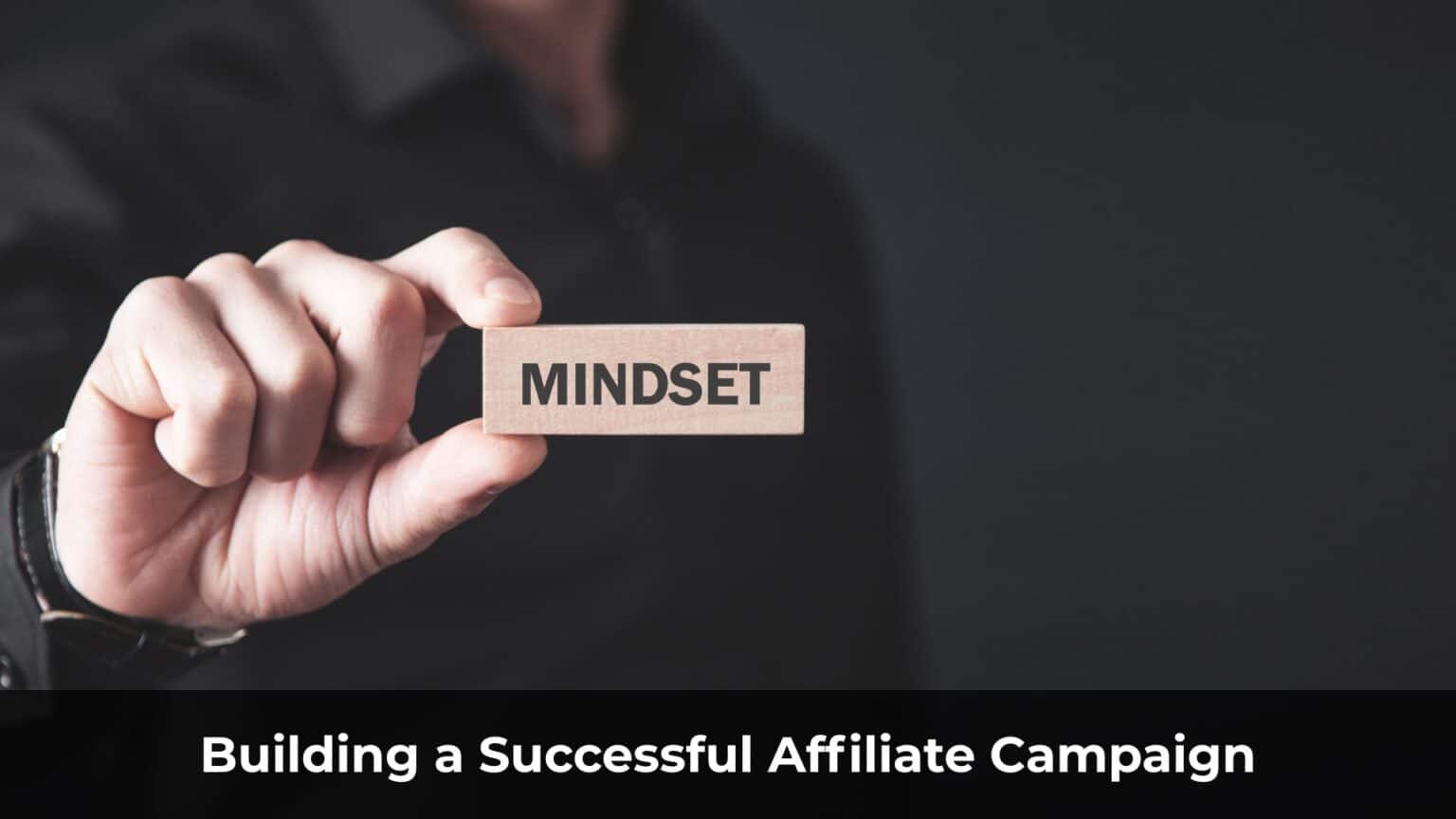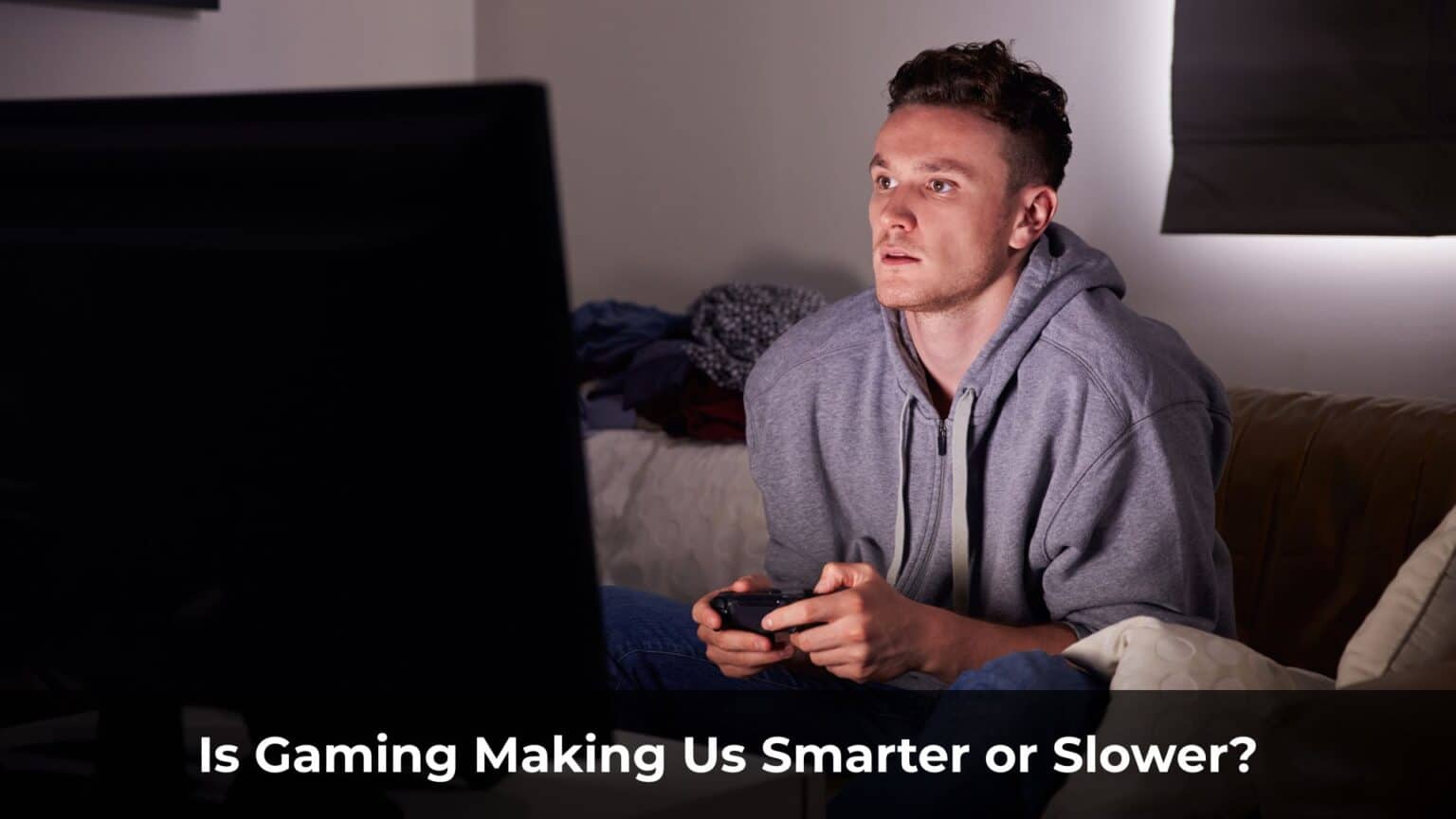Have you ever told yourself, “I’ll do it tomorrow”—only to push it to the next day, the next week… and then quietly let it go?
I’ve done that too. More times than I’d like to admit.
Sometimes, I knew exactly what I needed to do. I knew it was important. But somehow, a random distraction—like mindlessly scrolling through my phone—pulled me away from it.
If you’ve ever felt that way, this post is for you.
Let’s take a moment together to understand:
Why do we procrastinate? And more importantly—how can we start taking action and finally overcome it?
Table of Contents
ToggleWhy Do We Procrastinate?
If you’re someone who struggles with procrastination, let me tell you this: It’s not because you’re lazy. And it’s not because you’re not smart enough.
In fact, there are three surprisingly simple reasons why you keep falling into this cycle.
1. We’re Addicted to Instant Gratification
In today’s world, all it takes is a quick tap on your phone—and boom: social media, viral videos, games, news feeds…
All designed to give you instant pleasure, with almost zero effort.
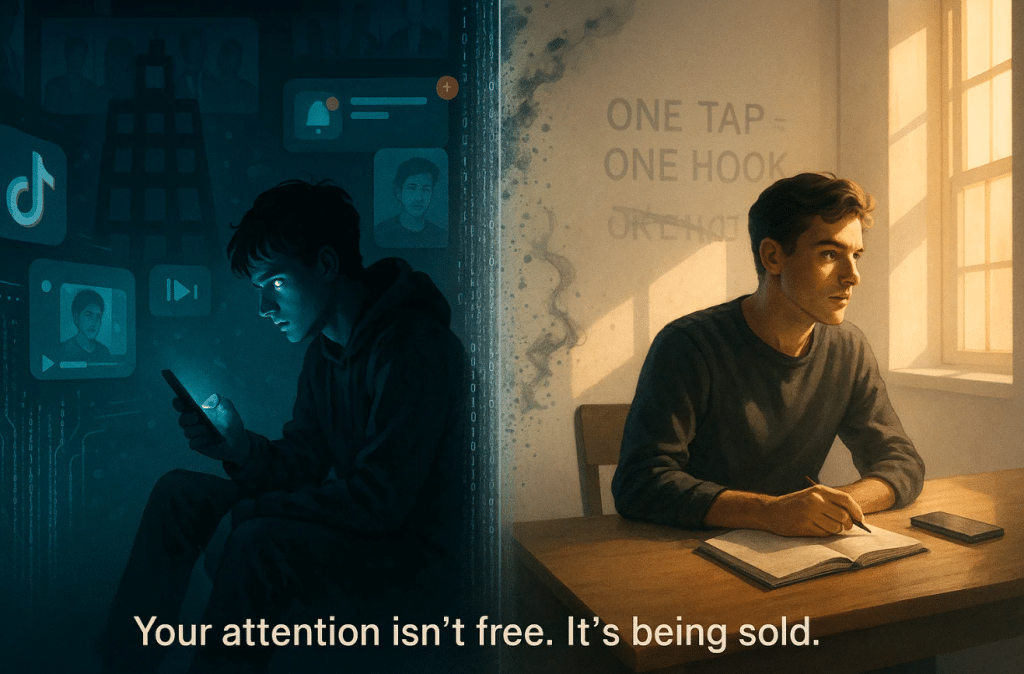
But here’s the truth most people don’t realize: That’s not an accident.
Behind every app you use daily is a multi-billion-dollar company.
They hire the world’s top behavioral psychologists to craft experiences with one goal: To make you addicted to their platform.
The longer you stay, the more data they gather about you.
And the more data they have, the more precisely they can target ads—and the more money they make.
How do I know this?
Because I work in advertising. And if you saw how deeply AI is now woven into ad targeting, you’d be stunned.
Once you understand this, things become clearer:
It’s not just about willpower.
It’s that you’re living in an environment engineered to hijack your attention, second by second.
When your brain gets used to “one tap = instant reward,” it naturally resists anything that feels slow or difficult—like studying, working, or building a new skill.
We’re not lazy. We’ve just been conditioned by our environment to respond this way.

2. You Don’t Have a Strong Enough “Why”
Think about it: Why is it so easy to spend hours watching videos, playing games, or scrolling through social media?
Because it’s fun. Because it’s easy.
But the big goals in life—learning a new skill, building a career, getting fit—those feel heavy, vague, or too far away.
And if your “why” doesn’t feel meaningful enough, it’s easy to let it go.
Only when you have a deep, personal reason—something that truly matters—can you resist short-term temptations and stay the course.
I’ve noticed something: Young people tend to procrastinate more.
Why? Because in your youth, no one expects you to carry heavy responsibilities just yet.
- You don’t have a family to support.
- You’re not caring for aging parents or raising children.
The road ahead seems long, so putting things off by a day, a week, or even a month doesn’t feel like a big deal.
But look at people with families and kids. They don’t have the luxury to delay. They grow up—because they have to.
Every day, they know they have to show up—not just for themselves, but for the people counting on them at home.
The sad part?
Some people have procrastinated for so long that even when they do have a family, they still can’t break free from the habit.
And at that point, the consequences no longer fall on just them.
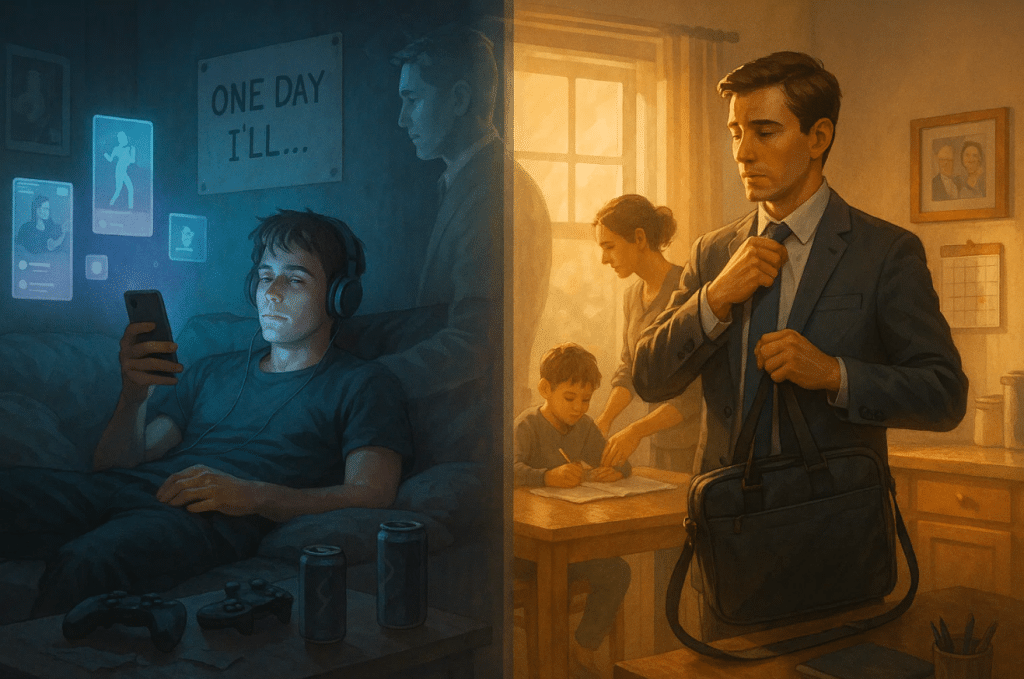
So if you’re still young, ask yourself:
- “If I keep living like this… what will my future look like?”
- “My parents supported me through so much. I want to become someone they can be proud of.”
Don’t wait for life to put pressure on your shoulders before you change.
If you’re still young, start now. Not just for you— But for the people you love.
3. We Link Important Tasks with Negative Emotions
Procrastination doesn’t just show up in work.
- We delay learning new skills.
- We delay taking care of our health.
- We even delay simple things—like cleaning up our living space.
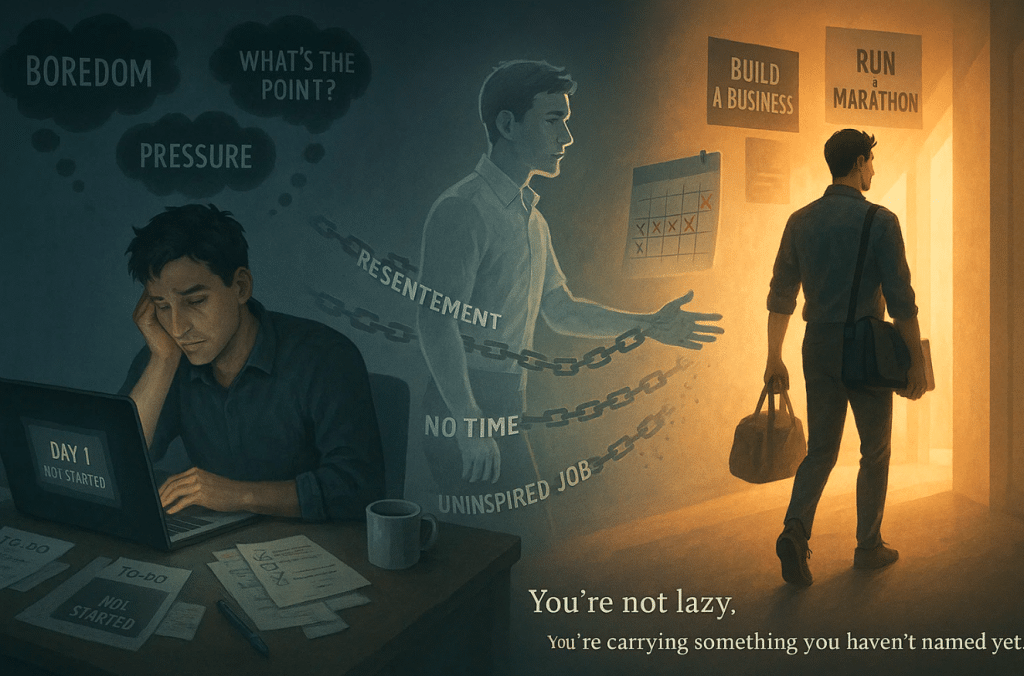
Why? Because deep down, we’ve started associating these tasks with discomfort: pressure, boredom, or exhaustion.
For people like me—and maybe like you, if you’re in online business—this is all too familiar.
When you work for yourself, you have freedom. No boss. No clock. No one chasing deadlines but you.
And ironically, that freedom makes procrastination even more dangerous. There’s no one to call you out when you fall behind. No one to push you when you’re stuck.
But even people with full-time jobs face the same trap.
After a long day at the office, starting a new habit or skill feels overwhelming. Just the thought of putting in more effort is enough to make you shut down.
And here’s the deeper problem: A lot of people simply don’t love what they do.
There’s a saying: “Sometimes the job chooses you—not the other way around.”
Not everyone gets to turn their passion into a profession.
Many graduates step out into the world, degree in hand, and quickly get swept into the grind of survival.
Work becomes a duty—not a dream.
And when you spend years doing something you don’t care about, those negative emotions build up.
So when you finally think about learning something new or growing in a different direction, your brain quietly asks: “What’s the point?”
And without a strong want, it’s hard to find the will.
That’s why procrastination isn’t just laziness.
It’s often the byproduct of emotional baggage—resentment, fatigue, even hopelessness—that we unknowingly attach to meaningful action.
And here’s the real cost of procrastination: It’s not just the task you didn’t finish today.
It’s the opportunity that slipped away. The goals that slowly fade into the background. The better version of yourself that drifts further and further out of reach.
Every time you procrastinate, you trade your future for a fleeting moment of comfort.
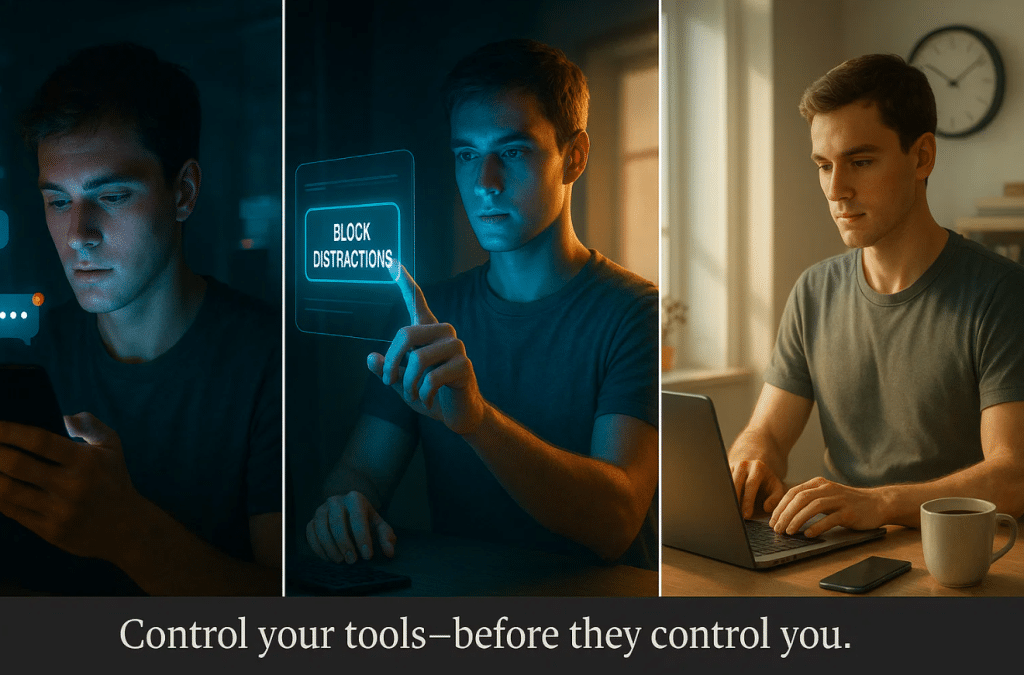
So How Do You Beat Procrastination?
Understanding the cause is just the first step.
To escape the cycle of procrastination, you don’t need a radical transformation—just a few small changes. But these small changes can completely shift the way you act each day.
Here’s where you can start:
Reduce Digital Temptations
If your environment is filled with distractions—phones, social media, video games—every work session becomes a battle of willpower.
When I first discovered social media, I slowly slipped into the online world. And I’ve been wrestling with procrastination… for over ten years now.
You don’t need to cut everything out. But you do need to create “clean” pockets of space and time—free from constant stimulation.
For example:
- Keep your phone on silent while you work.
- Block out one hour in the morning for deep work—no YouTube, no notifications.
- Don’t leave tabs open that pull your attention away.
Even a small reduction in distractions can make it much easier to stay focused.
Personally, I still use Facebook to communicate with business partners. But I installed News Feed Eradicator to block the home feed on both Facebook and YouTube.
I also found myself getting hooked on short videos—so I use Cold Turkey to block the video feature entirely.
Now, I only keep the messaging and notifications active.
Since then, I’ve finally broken my social media addiction.
On mobile, you can try using screen-time limiter apps to cut down your usage.
Find a Reason That Truly Matters to You
When your reason is strong enough, you’ll find a way.
For a long time, I struggled with staying consistent in my work—until I asked myself:
“If I keep living like this… what kind of future am I heading toward?”
If you catch yourself procrastinating, pause and ask:
- Why am I doing this?
- What does it really mean to me?
- What am I risking if I keep putting it off?
Don’t chase goals just because others expect it. Find something that genuinely matters—to you.
But your reason doesn’t need to be lofty or grand.
Maybe it’s about showing up for yourself. Maybe it’s about building a better life for the people you love.
And that’s enough.
If you’re just trying to live a good, honest, fulfilling life—there’s nothing “small” about that. That alone is a reason worth fighting for.

Reconnect With Positive Feelings Toward Work
If you’re feeling bored, unmotivated, or drained by your work—maybe it’s time to see it from a different angle.
Try turning your working hours into moments you actually enjoy.
For example, you might play some gentle instrumental music in the background. Or simply tell yourself: “Every task I finish is a small win.”
When you begin to associate work with positive emotions, your brain stops resisting so much—and it becomes easier to take action.
Some classical music has even been shown to enhance focus and reduce stress. Here are a few great options to get started:
- Johann Sebastian Bach – Brandenburg Concerto No. 3
- Ludwig van Beethoven – Für Elise
- Wolfgang Amadeus Mozart – Piano Sonata No. 16
- Antonio Vivaldi – Four Seasons (Spring)
These pieces aren’t overly dramatic or distracting. Instead, they help you ease into a flow state—where work feels smooth and natural.
If it works for you, consider creating a soft, personal playlist.
Let music become your quiet companion every time you sit down to work.
Note: This won’t apply to everyone. If music makes it harder for you to concentrate, then a quiet, distraction-free space might be the better choice.
Create a Simple Action Plan
Don’t wait for motivation to strike. Instead, write a clear sentence like this:
“I will [do this task] at [this time] in [this location].”
For example: “I will write 3,500 words for my blog post at 7:30 AM, at my desk.”
A small, specific action is far easier to start than a vague promise like “I’ll try to be productive today.”
To sum it up, here’s what you need to do:
- Reduce distractions.
- Find a reason that matters.
- Reconnect with positive emotions around your work.
- Make a clear, actionable plan.
You don’t need to change everything overnight.
Just start with one small thing today. Then do a little more tomorrow.
Slowly but surely, you’ll start to see the difference— You’ll become stronger, more focused, and more in control of your life.

Sometimes, You Need to Pause—on Purpose
I’ve said a lot about the dangers of procrastination. But let me be clear:
Not all procrastination is bad. There are times when what you need isn’t to rush into action— But to step back, and look at the bigger picture.
One quote I deeply resonate with is this:
“If I had eight hours to chop down a tree, I’d spend six sharpening the axe.”
—Abraham Lincoln
If you’re constantly grinding, pushing forward without a plan or direction, you might just end up exhausted—and off course.
So before diving in, take a moment to reflect:
- Is this task truly important?
- Is this the best path to my goal?
- Am I well-prepared to begin?
Strategic planning, followed by focused execution— That’s how you build something that lasts.
It’s not about working harder for the sake of it. It’s about working smarter—with clarity, calm, and purpose.
A Few Final Words…
Procrastination isn’t a disease.
It’s just a habit—a habit that grows quietly, day by day, through small decisions we barely notice.
So if you see yourself as someone who procrastinates, don’t be ashamed, don’t beat yourself up.
It’s not entirely your fault.
And procrastination? It’s just a bad habit. And like any habit—it can be changed.
You don’t have to wait for “someday” to be perfect. You just need to choose today—to do one small thing, Instead of skipping it like you usually do.
I won’t pretend the journey is easy.
But I do know this: Every small step forward, every time you choose to act instead of avoiding— You’re becoming a little bit stronger.
Day by day. Moment by moment.
And if you’ve read all the way to these final lines, Maybe—deep down—you’re already ready to change.
So then…
Why not start today?

